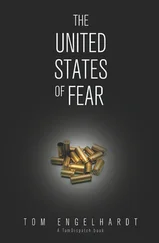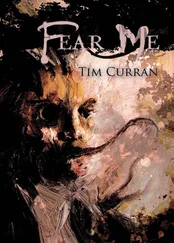I had just passed Shippen Street, heading south into a rough quarter, when I saw an unmistakable figure walking half a block away, in front of me. I could not believe my own eyes, and I quickened my pace to catch up, and when I was several paces behind, and sure of who I saw, I called out, “Rose!”
The figure spun around to face me. I saw that she recognized me quickly enough, although I had certainly put on flesh. She had, as well; clearly, she was with child.
“Rose!” I said, again.
“Hello, James,” she said, flatly.
What a mixture of emotions coursed over me then. Her hair was still short, yet not carefully attended to. She wore a skirt that went only to her calves, and a shapeless blouse. The skin on her face was drawn, and I noticed a reddish, dry patch on her elegant neck. She was still lovely, yet her features wore an expression from which the light had all but disappeared. A crease had formed between her eyebrows.
“How are you?” I asked, putting out my hand, hoping for a touch of hers on mine.
“I’m well, James,” she said, with no expression, taking my hand briefly and then letting hers fall back to her side.
“Do you live here?” I asked. “In this neighborhood, I mean?”
“I stay nearby,” she said. She looked up and down the block.
“Please,” I said, “do you have time for a visit? We can go to Tanner’s.”
“No,” she said, “I should not.” She did not seem absolutely sure of this, and I asked again if we might at least sit and visit outside for a while, and she relented.
I bought two buns for us at a bakery a block away, and we took them and sat on some piled-up rocks that served as a partial levee between docks on the river’s edge. It was a beautiful early spring afternoon, and we unwrapped the waxed paper around our bread and ate, talking and looking out at the Delaware. I told her of how the year had gone; she had heard about the melee, of course. I told her that I was retired from performing, that it had lost its appeal, and she seemed saddened by this, but not surprised. I did not mention that I had moved down somewhat in the world, although I am sure that was clear enough on the face of things. She asked about Mulligan, and I told her he had gone to Boston. She did not ask about Henry.
I had lost track of her after the troupe disbanded, assumed she had gone with Eagan and the others, and I told her this, asked how the fellows were. She told me she had not seen Eagan for the better part of a year.
“But why?” I said. “I had thought you would follow them to their new theater. .?”
“I did,” she said. “But Michael tired of me.”
“Tired of you?” I said. “That is impossible!” I believe that I meant this to sound lighthearted, and I saw her attempt to summon a smile in return, but her features expressed only a sadness that nearly broke my heart.
“He accused me of being unfaithful,” she said. “I don’t know if he even believed that himself. I think he just wanted to be rid of me.”
“Well. .” I said, hesitant to ask a further question. “I can’t understand that.”
“Can’t you?” she said.
“Are you with another troupe now?”
She shook her head in the negative. “I do piecework. I make my living as I can. As you can see, I will have a dependent soon.”
“Is it. . Eagan’s child?” I blurted out.
“No, James,” she said. “It is not Eagan’s child.”
We sat silently for a while longer, as I struggled to think of what to say. At length, Rose said, “I ought to go.”
“Rose,” I said. We stood up, and I felt something rushing through my hands that I would never again touch, and I felt a kind of panic rise in me, and on impulse I said, “Come to live with me. I’m not in the finest place, but I will take care of you as well as I can. Please — we can still make something of our lives, together.”
Even as I was saying these words I watched her expression darken into a frown, a wounded look, and she stepped back from me.
“What’s wrong?” I said.
“Oh,” she said. “You are still a child.” She drew her arms around herself, looked as if she might say something else, then she turned and walked, quickly, away. And I stood there, dumbly, watching her.
That encounter broke something final inside me, as if a cyst had burst and the last store of boyish hope, and fear — the best in me, perhaps, and perhaps also the worst — began to dissipate. If I had not, until then, finished with being a boy, now I surrendered my papers. I pulled myself together and got a job working in, then managing, a lumber warehouse. I gradually returned to a more stable financial footing, recovered an aptitude for lists and receipts. I counted and stacked and counted again.
Yet as I left that island of boyish illusion behind, I found myself wondering more and more often what had happened to Henry. Had he managed to find a place where he could settle? Had he managed to stay free? I had never wholly known him, and yet he had meant something much more to me even than I had realized at the time, more as the months and years went by. The freedom he had claimed for himself, in spite of enslavement. I wondered if he had found a place of safety. I never would have an answer to that question.
Then, one evening, borne on some rogue breeze, I found myself in front of the New Walnut Theater, with its placard outside, a stream of people lining up for tickets and entering, and I decided to join the crowd, enter and see the show. It was a new troupe, one that made a specialty of “original Darky minstrelsy.” Enough time had gone by that the original five-man troupes were again something of a novelty, though they drew an audience half the size ours had been at Barton’s. The names on the showbill were unfamiliar to me.
I went in, took my seat, and waited, as if in two places at once — in front of, and also behind, the proscenium. I could imagine them getting ready in the dressing room, imagine them settling in the chairs behind the curtain, making final adjustments. At length, the master of ceremonies appeared and made his announcement, and then the curtain rose to the tambourine’s whack and a voice declaiming, “ Good ebening, everybody! ” The audience leapt up around me, shouting and clapping, and I remained seated and heard the line sail into “Lucy Long,” and the song did make me smile, and when the audience had gotten seated again, and clapped along, I watched in bittersweet pleasure. I still loved the beautiful illusion, even as I saw through it. How could I not? If someone were to promise that it was possible to dance in the teeth of oppression and affliction, to cast away the frailty of age, the attrition of illness, the weight of every mistake one had made in life, possible to be absolved from every wrong you had done and witness your accusers singing your praises. . Well, pilgrims would arrive from every point on the globe to be told this, though they knew it to be a lie. The show went on, and the show went on, and I was there, and I was not there. I knew too much about it all, and the illusion was gone from me. Yet still I rejoiced, and still I wept.
There is nothing better than a macaroon. Unless it is a cherry tart from Leininger’s. If I spill a crumb or two, Addie keeps at me until I clean it up myself. At those times I offer protest by calling her by her given name, Frances, and she pretends not to notice. Or perhaps she does not, in fact, notice. I remind her that I am a senator, that my time is in demand, that I will soon leave Auburn again and travel back to Washington and she will miss me, and in reply she hands me a list of items that need attending around the property, a few names of our latest petitioners, pet social causes to which she would like me to lend my support.
Читать дальше










